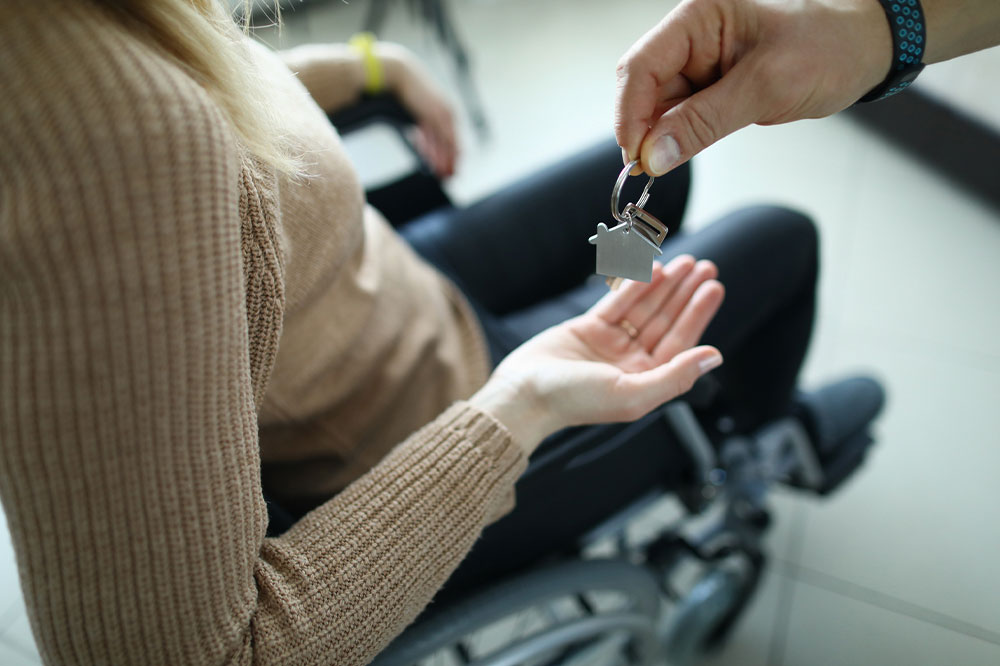Disabled Loans – Benefits and Requirements
The term “disabled loans” refers to loans for people with disabilities aimed at assisting those with disabilities in meeting their financial obligations. These loans can cover various costs associated with disabilities, such as healthcare expenses, adaptive devices, and home improvements. Credit unions, banks, or specialized lenders might provide disabled loans. To consider the borrower’s financial condition, certain lenders could demand documentation of a handicap or offer more lenient repayment terms.

Requirements for loans for people on disability
Several factors, including the lender and the particular loan program, and the requirements for loans for people on disability, may change. To qualify for a loan for people with disabilities, however, borrowers may need to fulfill the following broad requirements:
- Proof of disability
Certain financial institutions could want proof of disability, including a statement from the doctor or proof of disability benefits. - Age and residency requirements
Potential borrowers may need to be residents of the lender’s region of service and at least 18 years old. - Income
Lenders may request proof of income to guarantee that debtors can repay the loan. This may include payment receipts, tax forms, and other financial records. - Credit history
Certain lenders may check the borrower’s credit record to calculate the loan’s risk level and interest rate. - Collateral
Based on the lending program, borrowers must use collateral (such as a car or piece of an asset) to secure their loan.
Loans for people on disability benefits
People with impairments may benefit in several ways from short-term disability loans. The following are some potential advantages of getting a handicapped loan:
- Cover disability-related costs
Loans for people with disabilities can be used to pay for various costs associated with a person’s handicap, including healthcare costs, technological aids, home adjustments, or even automobiles that can be modified to fit their condition. - Flexible repayment options
Loans for people on disability may come with more flexible repayment options than standard loans, depending on the lender. People with impairments who may have variable income or who require additional time to repay their loans may find this beneficial. - Lower interest rates
If the loan is guaranteed by a government agency or a nonprofit organization, certain lenders may provide reduced interest rates for disabled loans. - Enhance the quality of life
By providing money for required equipment, services, and adaptations, disability loans can help persons with impairments live more freely and independently. - Create credit
Borrowing money for a disabled person and paying it back can assist in creating a credit record, which can be crucial to subsequent borrowing and financial security.
Short-term disability loans
People with disabilities who require borrowing funds for a brief period, usually up to one year, can apply for short-term disability loans. These loans may be useful for filling in income gaps caused by disability-related difficulties or covering unforeseen needs.
Short-term loans for disabled people include the following:
- Payday loans
They’re short-term loans, usually repayable on the borrower’s following payday. Payday loans are possible for those with disabilities who require urgent cash, but they frequently have exorbitant interest rates and costs. - Cash advances
Cash advances are debts obtained out more than the credit card limit of the borrower. They can be a rapid source of money, similar to payday loans, but frequently include exorbitant interest and fee rates. - Personal loans
While most people take out personal loans for lengthier periods, certain lenders also provide short-term loans for personal use with payment terms of no more than six months. - Installment loans
Installment lending are short-term financial commitments paid back in a fixed number of installments over a predetermined time. For those with disabilities who require a bigger sum of money and repay it over a longer period, these loans may be an alternative. - Credit-builder loans
These loans are made to help borrowers establish their credit. These loans have low or no interest and are paid back quickly. People with impairments and a desire to create or raise their credit score may benefit from credit-builder loans. - Microloans
Microloans are tiny loans, usually around $50,000. For those with disabilities who require a small sum of money for a brief period, these loans may be an alternative. Governmental or nonprofit organizations frequently provide microloans. - Title loans
Borrowers who take out title loans have their vehicles pledged as collateral. While title loans might give you instant access to money, they frequently come with exorbitant interest rates and the possibility of losing your car if you don’t repay the loan. - Social Security loans
Recipients of Social Security who have an emergency or unforeseen expense may be qualified for a Social Security loan. These loans normally have no interest and are paid back by taking a portion of the borrower’s prospective Social Security benefits. - Bridge loans
Bridge financing is intended to fill the financial gap between a short-term funding requirement and a longer-term funding option. People who have disabilities and are awaiting a government grant or settlement award may want to consider bridge loans. - Veteran loans
The U.S. Department of Veterans Affairs (VA) may be able to provide short-term loans to disabled veterans. These loans may be utilized for several things, including home repairs or medical expenses.
Before applying for disability loans near me, exploring various lenders and loan possibilities is crucial. To be sure you’re getting the greatest loan for your circumstances, compare interest rates, costs, and payback conditions. Reaching out to organizations that specialize in helping individuals with disabilities is also a good option because they might have resources or loan programs available.